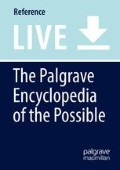Abstract
This entry aims to examine the features of dialectics when studied from the perspective of the psychological development of knowledge and its functions in the works of Piaget, Vygotsky, and Valsiner, where it is described as a novelty producing process. In these authors, dialectics is understood both as a research methodology and as a constitutive part of the explanation of psychological development. In Piaget, the dynamics of dialectics and the possible are examined through the equilibrium theory of development, which includes dialectical inferences specific for epistemic constructivism and based on the interplay between undifferentiation, differentiation and integration. In Vygotsky, interpreting the dialectics of possible novelties in higher mental functions, particularly the zone of proximal development can be seen as a dialectical reorganization achieved through guided development, from a learner’s real knowledge to what she can achieve with others’ assistance, i.e., an actualization of potential knowledge. In Valsiner, the synthesis of opposites is the main feature of dialectical thinking, hence the “actual” is a construction from possibilities allowed by an earlier level of development in the interaction between an individual and their own semiotic world. It is argued that each author contributes to understanding the relations between the possible and actual, especially given the difficulties faced by each approach, and they all pave the way for new research questions.
References
Bidell, T. (1988). Vygotsky, Piaget and the dialectic development. Human Development, 31(6), 329–348.
Campbell, R. L. (2009). Constructive processes: Abstraction, generalization, and dialectics. In U. Müller, J. I. M. Carpendale, & L. Smith (Eds.), The Cambridge companion to Piaget (pp. 150–170). New York: Cambridge University Press.
Castorina, J. A. (2007). Cultura y conocimientos sociales: desafíos a la psicología del desarrollo (pp. 21–45). Buenos Aires: Aiqué.
Castorina, J. A., & Baquero, R. (2005). Dialéctica y psicología del desarrollo: el pensamiento de Piaget y Vigotsky. Buenos Aires: Amorrortu.
Gadamer, H. G. (2000). Dialéctica de Hegel. Madrid: Ediciones Cátedra.
Harvey, D. J., Merry, A. H., Royle, L., Campbell, M. P., & Rudd, P. M. (1996). Justice, nature & the geography of difference. Oxford: Blackwell.
Jameson, F. (2013). Valences of dialectics. London: New Left Books.
Marti, E., & Rodriguez, C. (Eds.). (2012). After Piaget (Vol. 1). New Brunswick (USA) and London (UK): Transaction Publishers.
Overton, W. F. (1998). Developmental psychology: Philosophy, concepts, methodology. In Handbook of child psychology (p. 1). New York: John Wiley & Sons, Inc.
Overton, W. F. (2012). Evolving scientific paradigms: Retrospective and prospective. In Paradigms in theory construction (pp. 31–66). New York: Springer.
Piaget, J. (1974). Etudes sur la Contradiction. Paris: PUF.
Piaget, J. (1976). Le possible, l’impossible et le nécessaire: les recherches en cours ou projetées au Centre international d’épistémologie génétique. Archives de Psycologie, 44, 281–299.
Piaget, J. (1981). Le possible et le nécessaire (Tome I and Tome II). Paris: PUF.
Piaget, J. (1984). Las formas elementales de la dialéctica. Barcelona: Gedisa.
Piaget, J. (2001). Studies in reflecting abstraction. Hove: Psychology Press.
Popper, K. (1972). Conjectures and refutations. The growth of scientific knowledge. London: Routledge & Paul Kegan.
Ross, W. D. (1964). Aristotle’s metaphysics: Books ZN (Vol. 2). London (UK): Clarendon Press.
Valsiner, J. (1997). Culture and the development of children’s action. Toronto: Wiley.
Valsiner, J. (2006). The development of the concept of development: Historical and epistemological perspectives. In W. Damon & R. M. Lerner (Series eds.) and Lerner RM (Vol. ed.), Handbook of child Psychology (pp. 189–232). New York: Wiley.
Valsiner, J. (2007). Culture in minds and societies (Foundation of cultural psychology). London: Sage.
Valsiner, J. (2011). Constructing the vanishing present between the future and the past. Infancia y Aprendizaje, 34(2), 141–150.
Valsiner, J. (2012a). La dialéctica en el estudio del desarrollo. In J. A. Castorina & M. Carretero (Eds.), Desarrollo Cognitivo y Educación (I) (pp. 137–156). Buenos Aires: Paidós.
Valsiner, J. (2012b). A guided science: History of psychology in the mirror of its making. London: Transaction Publishers.
Valsiner, J. (2015). The place for synthesis. Vigotsky’s analysis of affective generalization. History of the Human Sciences, 28(2), 93–102.
Valsiner, J., & Van der Veer, R. (1993). The encoding of distance: The concept of the zone of proximal development and its interpretations. In R. Cocking & A. Renninger (Eds.), The development and meaning of psychological distance (pp. 35–62). Hillsdale: Lawrence Erlbaum Associates.
Vigotsky, L. (1926/1996). Obras Escogidas IV (pp. 249–377). Madrid: Visor.
Vigotsky, L. (1927/1991). Obras Escogidas I (pp. 357–426). Madrid: Visor.
Vigotsky, L. (1931/1995). Obras Escogidas III (pp. 11–326). Madrid: Visor.
Vygotsky, L. (1933/1994). Obras Escogidas II (pp. 9–287). Madrid: Visor.
Vigotsky, L. (1972). Psicologia del Arte. Barcelona: Barral.
Author information
Authors and Affiliations
Section Editor information
Rights and permissions
Copyright information
© 2021 The Author(s), under exclusive licence to Springer Nature Switzerland AG
About this entry
Cite this entry
Castorina, J.A. (2021). Dialectics. In: The Palgrave Encyclopedia of the Possible. Palgrave Macmillan, Cham. https://doi.org/10.1007/978-3-319-98390-5_49-1
Download citation
DOI: https://doi.org/10.1007/978-3-319-98390-5_49-1
Received:
Accepted:
Published:
Publisher Name: Palgrave Macmillan, Cham
Print ISBN: 978-3-319-98390-5
Online ISBN: 978-3-319-98390-5
eBook Packages: Springer Reference Behavioral Science and PsychologyReference Module Humanities and Social SciencesReference Module Business, Economics and Social Sciences

